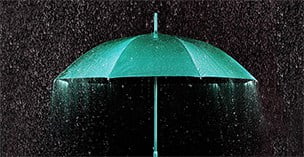Contractors Installation Floater Coverage
On Point.
Installation Floater coverage protects your property and materials while a job is in progress. Materials in transit, at a temporary location and at a job site location are not covered for losses without this coverage.
Contractors Installation Floater Coverage
The Blindspot
It isn’t common knowledge that materials in transit, at a temporary location, or at the customer’s job site are not covered for loss unless an Installation Floater has been purchased. Many contractors and tradesfolk are missing out on this critical coverage that may stall operations or impact project success.
Contractors Installation Floater Coverage
The Solution
A Contractors Installation Floater protects your property and materials by covering the gaps in protection during transit, storage and at the job site. It can be purchased for a reasonable yearly cost and extend the limits of coverage while a job is in progress.
Who Needs Installation
Floater Insurance?
As a contractor you likely already have contractor insurance. However, it doesn’t cover everything you think it might. The materials you use to complete a job may not be protected. Installation floater insurance is needed if you’re the one transporting materials to a client’s home or place of business. It is also needed if any materials in process will be left on the jobsite during the work such as tiles, lumber, or specialty items. It should also be considered because accidents can happen on the job. For example, if you drop a vanity sink at the job site and it’s no longer usable, or the flooring is stolen when the property is unoccupied, installation floater insurance will cover the cost of replacement materials.
Anyone in a profession that’s in the business of building or installing expensive items on site (pools, decks, kitchen cabinets, flooring, HVAC systems, etc.) needs this type of coverage.
Can you give me a few examples
of ‘coverage’ in action?
Frequently Asked Installation Floater Coverage Questions
No two businesses are the same, and as such their coverage needs can vary. These frequently asked questions might help you understand more about Contractors Installation Floater Insurance.
Excalibur Insurance can help you secure a Contractors Installation Floater solution to best meet your needs. Schedule a consultation with us today.
Help me understand Builder’s Risk Insurance vs Installation Floater Insurance?
Builder’s risk insurance, also known as course of construction (COC) insurance, protects the building and the liability during the project’s life. You should require the home or business owner to get this type of insurance. Builder’s risk insurance is typically needed for major renovations, new construction, or adding an addition or second story to a home.
This type of insurance covers the building, materials at the job site, and liability if there’s physical loss or damage because of an insured event, such as vandalism, theft, or fire.
While it may appear you won’t need installation floater insurance, materials located at the site are only covered with builder’s risk insurance, not those you still need to transport or items that break just before installation.
What is the difference between Installation Floater Insurance and Tools and Equipment Insurance?
Installation floater insurance is designed to protect the cost of replacing the materials used. On the other hand, tools and equipment insurance covers the cost of replacing the tools and equipment used during the installation process if they’re stolen, lost, or damaged.
They’re two different types of coverage; having both will protect you from potential losses.
Does my Installation Floater have any exclusions?
There are exclusions to an Installation Floater, as there is with any insurance policy. Installation Floaters cover only installation-related labour costs, and sometimes damage to materials during transit. Exclusions will generally vary by the insurer and by the policy, so always check the wording of your insuring agreement as cautiously as you can. Many exclusions can be addressed by purchasing separate or additional endorsements if your business requires specific coverage.
Commonly Excluded property types are as follows:
- Buildings, structures, and land that are not included as part of the installation
- Contraband equipment
- Trees and landscaping Machinery, tools, and equipment that are not part of the installation
- Temporary structures such as fencing, cribbing, scaffolding, lighting, and retaining walls
- Money and securities
Commonly excluded perils of loss are as follows:
- Buildings, structures, and land that are not included as part of the installation
- Flood
- Earthquakes or volcanic eruption
- Sewer backup
- Mechanical breakdown
- Temperature changes
- Wear and tear
- Loss of use, delay, loss of market, business interruption
- Pollution
- Contamination or infestation
- Missing property with no evidence
- Civil authority, including quarantine, seizure, confiscation, destruction
- Nuclear hazards
- Military activity
- Enforcement of law or code
Many perils that you may feel are a risk to you which would not otherwise be covered by your policy may be insured via the purchase of an endorsement or separate policy particular to that risk. For example, you can purchase Equipment Breakdown to cover your equipment and tools for internal damages and unexpected breakdown.
Speak to your Excalibur Insurance agent about developing the best coverage package for your unique business needs.































